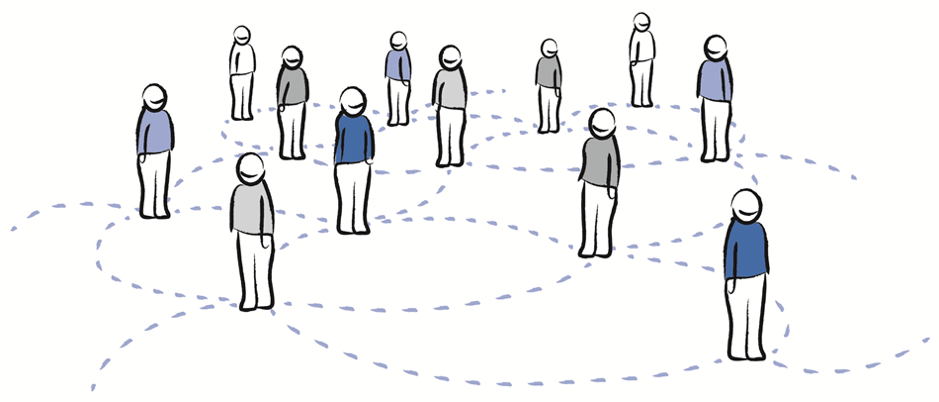Being connected to society is an essential ingredient to long-term profitability. If a company is not giving back to society, it is likely to be viewed as untrustworthy and distrust will undermine all aspects of the business (including finding talent).
For example, some years ago a large European insurance company announced that it would make a huge Agile transformation. Last year, it had a very profitable year, it was swimming in money – perhaps related to its decision to use Agile. However, the company has announced that it will sell its company sports facility, end the current employee subsidy, and rent it to a company that runs luxury fitness clubs. The company will make more profit from the property, but now many of the employees will not be able to have sports access. Society understood this news as “If the company is really Agile, why are they treating their employees like that?” and “That company is really greedy – watch out if they want to do business with you,” and “I wonder what other damage they are doing?”
Is your company doing a good job of participating in society? One typical metric is economical, but what about environmental, societal, or social? Note, that these metrics influence each other. It is not just a marketing question, “How do people perceive our company.” There are deeper aspects such as the impact on morale when employees are genuinely contributing to society, a perspective that the company is actually doing good for the society it is part of. Even customers may feel inspired if they know that the money they are paying the company is not just going for profit but for societal betterment.
But, how can your company become a warmly welcomed member of society? One way is to participate in networks. Following we list a number of networks that may possibly interest you – or at least inspire you to look for networks relevant to the type of work you do.
- Global Compact: A United Nations call for companies to align strategies and operations with human rights, labour, environment, and anti-corruption principles.
- Climate Group: A powerful network of companies and governments to ensure prosperity by keeping global warming under 2°Celsius.
- Institute for Multi Stakeholder Initiative Integrity: A nonprofit that promotes collaborations between businesses, civil society and other stakeholders that seek to address issues of mutual concern, including human rights and sustainability.
For a more complete list of suggested networks see Part IV of our book Company-wide Agility with Beyond Budgeting, Open Space & Sociocracy.
Involvement can start anywhere. You can take the initiative to recommend company involvement in large networks such as these. However, beyond that what about your department? Can your department or unit get involved in your local area? We are thinking of the story of a group of programmers who decided to adopt a foster child by contributing to a nonprofit organization. They contributed money and letters to the child and built a relationship with the community in which the child lived. Needless to say, on the job, they were a very productive group of programmers!












